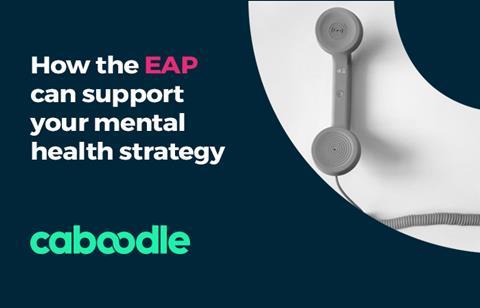
Providing support for employees is one thing, but what about support for your mental health strategy? An EAP is an absolute no-brainer for companies to provide their employees. Here’s why.
The importance of mental wellbeing at work
According to research from Accenture in 2018, 9 in 10 employees have been affected by mental health challenges either directly or indirectly. They also found that 66% have personally experienced problems with mental health.
Where the typical full-time employee spends around 40 hours of their week at work, it’s an ever-growing responsibility for employers to provide mental health support for their employees.
Many employers are improving fantastically in this area and the vast majority recognise its importance. However, many aren’t aware of the options available to them when it comes to helping their employees.
What is the EAP?
The Employee Assistance Programme (EAP) is a confidential service that provides employees help or advice on all manner of problems including bereavement, financial issues, legal problems and overall mental health difficulties. Support is usually provided either over the phone or through face-to-face consultations.
There are a number of ways you can offer an EAP to your employees. Typically they can be provided through an employee benefits provider.
What are the key benefits?
For employees, not only is the EAP a completely confidential service but it also provides access to support from experienced professionals.
The fact that it covers a wide range of problems the employee may be experiencing is also a huge benefit.
Where there are different types of support, both face-to-face options and over the phone, an EAP is suitable for just about anyone in just about any situation.
In many cases, support is also available for the employee’s family members too.
For employers the EAP provides a number of benefits which we’ll discuss further here.
While it helps support employers mental health strategy, which we’ll discuss further here, it also shows a duty of care to employees, while providing peace of mind knowing that employees have that support option available should they find themselves in a situation where the company itself is unable to help.
Removing the stigma and encouraging conversation
One of the key challenges when it comes to mental health is removing the stigma and encouraging conversation. It’s a huge step for someone to open up about their mental health and company’s have a duty to ensure that their employees are as comfortable as they can be in opening up and making the right people aware of their mental health problems.
Some companies do this through training mental health champions, where employees learn about mental health and how they can help their colleagues.
In some cases, mental health champions don’t just provide support for those who are suffering from poor mental health but look to prevent it too. This is done through encouraging positive mental health with mindfulness activities and health and wellbeing events and initiatives.
When it comes to mental health, early intervention and identifying the problem early is huge. It’s important to both be preventative and proactive when it comes to mental health.
The EAP – the next step
Normalising the conversation and letting employees know they’ll be supported is one thing, but once an employee has identified their problem, what is the next step?
This is where the EAP comes in and supports your mental health strategy. Directing employees to the EAP for support once the problem is identified is the next step to helping them improve their situation.
The beauty of the EAP is that virtually no matter what the problem is when identified, there is support available for the employee.
Furthermore, as it’s completely confidential, simply ensuring your employees that this service is there is all you need.
While removing the stigma and encouraging positive conversation around mental health is important, no employee should feel obligated to talk to one specific person or even let their employer know about their mental health problem.
However, simply normalising the conversation and removing the stigma is a crucial step in the problem identification, which will eventually lead the employee to seek help through the EAP. The whole process can therefore be confidential to the employee.
Due to its accessible nature, where employees often have the choice of support face-to-face or over the phone, it’s also easy for any employee who has identified that they are suffering from poor mental health to seek professional help that is usually available 24/7.
As such, the EAP is crucial to supporting your mental health strategy as it provides employees with that vital next step to help them on their way.
A benefit that is ever-growing in popularity
The EAP is becoming more and more popular among employers and is becoming an increasingly important aspect to any company’s health and wellbeing strategy.
Many companies offer it alongside a Health Cash Plan, which looks after an employee’s physical wellbeing, Health Assessments which provide another physical wellbeing option, as well as health and wellbeing education as a preventative measure for employees.
It’s also an easy benefit to incorporate and often hugely flexible to suit a company’s budget and needs.
As such, at a time where it’s as important as ever to have an effective health and wellbeing strategy in place, with a mental health focus in particular, the EAP is a no-brainer for any company to at least consider making part of their mental health strategy.











